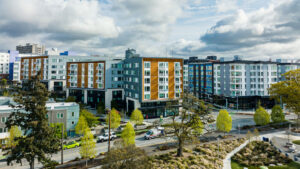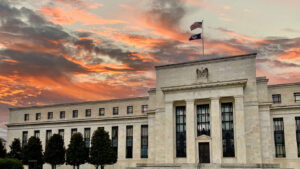Originally published April 25, 2022 GlobeSt.com by Kelsi Maree Borland under title “NNN Cap Rates Have Continued to Compress, Inflation Could Change That”
Commercial real estate isn’t exempt from the effects of inflation—no business is, but in this industry, it typically manifests in two places, both as a positive and a negative. The positive effect of inflation on commercial real estate tends to show up as increases in market rents and what tenants are able to pay. The negative effects will most often show up in operating expenses, not to mention the overall erosion of the purchasing power of the income stream being received by the owner as inflation erodes the value of the dollar. On fixed-rate triple-net lease properties, however, an owner will rarely have the opportunity to increase a property’s rental income to offset rising costs. That makes inflation a major challenge for NNN investors and owners.
“During normal inflationary periods, commercial real estate is impacted the same as any other industry,” says Chad Kurz, EVP at Matthews Real Estate Investment Services. “Higher costs are typically passed down to the next consumer. Inflation on a multifamily investment, for example, is passed down to the renter, which means they pay the landlord more money in rent. On a net lease investment, the problem is that most rents are pre-negotiated many years in advance, and thus are set in stone with very nominal increases.”
Kurz uses the example of a NNN Walgreens lease, which could have a fixed rate for decades. While the tenant pays for maintenance of the property, the buying power of the rental income is reduced during inflation. On that Walgreens lease, Kurz explains, if the landlord collects $300,000 in rent during seven percent inflation, their rent is now only worth $280,000 compared to what it was a year ago, in “today’s dollars.” Unfortunately, the landlord has no option to increase the rent, and that $20,000 of spending power is likely reduced forever. Now think through that process happening year after year. You can start to grasp what even a couple of years of a high inflationary environment will do to the value of the income stream of a relatively fixed rental schedule.
Of course, not all NNN leases have a fixed rate. Many include regular increases throughout the life of the lease. “A lot of net lease investments have increases throughout the lease, but still, many do not, and comparing it to recent inflation numbers, those increases are relatively low,” adds Kurz. Increases do help to offset inflation but may not offset it entirely. For example, a 2% annual or a 5% step increase every five years is common on some NNN assets, but the most recent rate of inflation last year was 8%. “One way to take advantage of rental increases throughout the lease is to leverage real estate, a 2% annual increase in rent could equate to a 6% increase in net cash flow.” However, Kurz does note that investors would be subject to refinancing risks in the future.
So far, inflation has not impacted values on triple net assets—actually, quite the opposite. Over the last 18 months, cap rates have continued to compress, even in the face of significant inflationary pressures. “Inflation should, theoretically, cause cap rates to increase. What we saw in 2021 was counter to that,” says Kurz. “Part of that was driven by compressed interest rates that began in 2020 and the market catching up throughout 2021. The other side of the equation is that demand from buyers continued to outpace the supply of inventory, so it is a function of supply-demand along with lower interest rates.”
Kurz says there is typically a market lag between interest rates before an increase or decrease in cap rates occurs, but we are quickly approaching the normal window of time. If inflation continues, that could change quickly. “The point of the Federal Reserve raising rates is to lower demand which will impact pricing. If inflation and interest rates continue to increase for the foreseeable future, that will likely have a big impact on values. That would be troubling since a lot of net lease investments are comparable to fixed income assets,” says Kurz. However, he has a more positive outlook. “If interest rates can settle, I think that cap rates will adjust, and the market will quickly get back to a normal market environment. Many experts believe that the future rise in rates has already been priced into the market, and interest rates will not continue the pace of increase we have experienced since the start of the year.”



